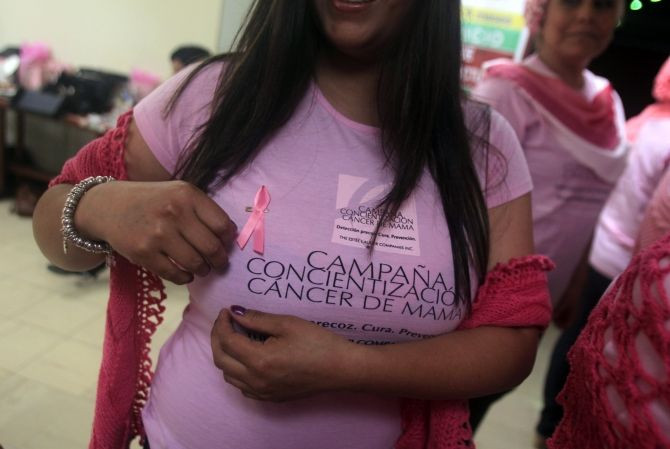Breast Density Does Not Increase Breast Cancer Death Risk

Women with dense breasts are at a higher risk of developing breast cancer but dense breasts do not lower survival rates after cancer diagnosis, according to a new study.
Previous studies have shown that breast morphology, such as density, is associated with increased risk of breast cancer. Whether breast density increases risk of death due to breast cancer has remained inconclusive.
“Overall, it was reassuring to find that high mammographic breast density, one of the strongest risk factors for breast cancer, was not related to risk of death from breast cancer or death from any cause among breast cancer patients," Gretchen L. Gierach, PhD, of the National Cancer Institute, lead author of the study, NCI press release.
Breast tissues known as fibroglandular tissue block the passage of X-ray more than fatty tissues. High levels of fibrogladular tissue appear as extensive white regions on an X-ray and is said to be mammographically dense, according to NCI.
The study included 9,000 breast cancer patients. The women were 30 years or older when their breast cancer was first detected. Breast density was measured using the Breast Imaging-Reporting and Data System. The score is given by a radiologist based on a visual review of a mammogram. Researchers also gathered data on the types of tumors these women had and other health factors.
Study participants were followed, on an average, for 6.6 years. During this time, a total of 1,795 participants died. For the participants, 889 patients had died due to breast cancer and 810 patients from other causes.
After adjusting for health factors and tumor types, researchers found that high levels of breast density did not affect cancer survival among these women.
The study also found that women who were obese had a higher risk of death due to breast cancer. Researchers say that high levels of fat in the breasts may support tumor growth and spread.
"It's a bit of a surprise. It shows we have a lot to learn about dense breast tissue and its implications for screening, diagnosis and treatment," said Barbara Monsees, chairwoman of the American College of Radiology's breast imaging commission, USA Today reports. Monsees wasn't involved in the new study.
The study was published in the Journal of the National Cancer Institute.
Published by Medicaldaily.com



























